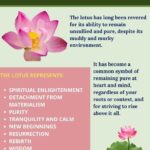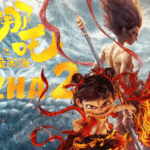Who is Nezha? The Unusual Birth of a Chinese Legend
In mythology, heroic figures often have extraordinary origins, but few are as bizarre and fascinating as Nezha’s. Unlike Hercules, born from Zeus’ divine infidelity, or prophets in Abrahamic religions conceived through divine will, Nezha’s birth defies natural laws entirely. Emerging from a mystical orb after an unusually long gestation, his story blends defiance and divinity in a way that sets him apart from other legendary heroes. This article explores Nezha’s unusual origins and what makes him unique among mythological figures.
The Miraculous Birth of a Divine Warrior
Nezha’s story begins not with a conventional birth but with a supernatural event. According to Chinese mythology, he was born as a flesh ball—a glowing, mystical orb—after his mother carried him for three years and six months. When his father, Li Jing, split the orb open with his sword, Nezha emerged fully formed, adorned with magical artifacts like the Cosmic Ring and the Red Armillary Sash, signaling his divine destiny. Unlike Hercules, whose divine heritage came from Zeus but whose birth was otherwise human, Nezha transcended human biology entirely, making his origin truly unique.
What further sets Nezha apart is his immediate supernatural prowess. While Western heroes like Hercules had to prove themselves through trials, Nezha was born with powers, including the ability to command the elements. His defiance of natural order continues throughout his legend, where he challenges both mortal and divine authority, shaping his reputation as a trickster and protector intertwined.
A Contrast to Mythological Archetypes in Other Cultures
Comparing Nezha’s birth to figures like Hercules or biblical prophets reveals stark differences. Hercules, while semi-divine, was born a mortal infant with immense potential, his heroism forged through struggle. In contrast, prophets like Isaac or John the Baptist were born through divine intervention but as normal infants, with their significance unfolding later. Nezha, however, emerged as an immediate divine force, independent from infancy.
- Supernatural Independence: Unlike Hercules, who relied on training, or Jesus, whose divinity was revealed over time, Nezha was powerful from birth.
- Defiance of Mortal Authority: While Abrahamic prophets submitted to divine will, Nezha revolted against heaven itself, making his rebellion central to his myth.
- Rebirth and Redemption: After self-sacrifice, Nezha was resurrected in lotus form, a rebirth absent in most Western heroes’ stories.
His legend, while uniquely Chinese, shares themes with trickster gods across cultures—yet his defiance of cosmic order places him in a category of his own.
Conclusion: Nezha’s Myth – A Blend of Rebellion and Divinity
Nezha’s birth story challenges the norms of mythology, where heroes often ascend through trials or revelations. His emergence as a preternatural being, his instant defiance, and his resurrection set him apart from figures like Hercules or biblical prophets. While sharing some traits with tricksters and demigods, his legend remains distinctly Chinese, embodying themes of resistance and transcendence. Nezha’s myth isn’t just a tale of birth—it’s a story of rewriting destiny itself.

